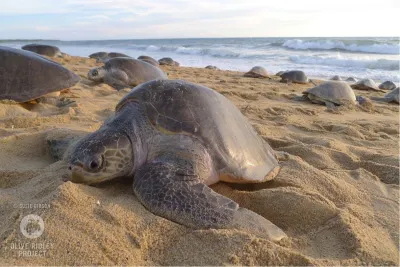As lockdowns continue around the world, dedicated divers will be longing for that next underwater adventure.
But we shouldn’t get too downhearted. With humans in isolation, wildlife sightings are on the rise. So there’s a great chance this prolonged surface interval could turn your next dive into one of the best!
Eagle rays spotted in Dubai
According to an article by CNN, the United Arab Emirates is the latest destination to witness this positive trend. Recent animal encounters include large gatherings of sharks and Risso’s dolphins, as well as eagle rays gliding right into Dubai Marina.

Sightings like these almost certainly suggest growing confidence among marine life. But it's also possible animals may be following their usual routes and simply spending more time near the surface. Either way, many conservationists are using this moment of increased awareness to promote positive changes after lockdown, from expanding marine protected areas to restricting watersports in wildlife hotspots.
Impact of decreased fishing
Fishing is one area with huge potential to create positive and lasting change. With a widespread fall in demand for seafood, the global lockdown could give fish some much needed time to replenish their numbers. Minna Epps, director of the Global Marine and Polar Programme at the International Union for Conservation of Nature (IUCN), said:
Potential downsides
But there could also be downsides. With humans currently out of the picture, some animals may suffer. As certain species thrive and begin to grow in population, or move into new territories, the delicate balance of the ocean’s fragile ecosystems could be altered. Tipping this balance too far in any direction can have devastating and long-lasting effects. And with global travel grinding to a halt, many destinations that rely on tourism to help fund conservation efforts could also be negatively affected.
The Covid-19 crisis has created a critical time for our oceans and the rest of the natural world. As ambassadors of the oceans, we should consider using this time to promote change, spread the message about conservation and adapt to new ways of living.




